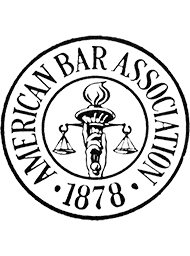Stage 1: Claim of Appeal
Michigan has a single Court of Appeals that hears appeals as of right and discretionary appeals. If you have an appeal as of right from the trial court order, you may file a Claim of Appeal. If you do not have the right to file a Claim of Appeal, you may file an Application for Leave to Appeal, which is a request that the Court of Appeals exercise its discretion and hear your appeal. Your appeal must be filed within 42 days of the entry of the order being appealed (often sentencing). There are many documents that must be filed along with your appeal.
Stage 2: Transcript Preparation
Official transcripts reflect all evidence and testimony presented during your pre-trial hearing and trial. Your Michigan appeal lawyer can review these materials to determine if any errors occurred and if decisions were legally sound. It is crucial to work with an experienced attorney who is familiar with Michigan criminal laws and appellate court procedure because you will have to make specific arguments based on problems in the original case. After preparing the transcript, the reporter files it with the Court of Appeals along with a “Notice of Filing Transcript.”
Stage 3: Filing Briefs
You must file a brief in support of your appeal. Your brief, which is a written argument of how the trial court erred and why its order should be reversed, must be filed within 56 days of the Notice of Filing Transcript. The appellee (the prosecutor) gets to file a brief, which may refute your argument that an error occurred or argue that any mistake that occurred at trial did not influence the ultimate decision in your case. After the prosecution files its brief refuting your initial arguments, you will have an opportunity to dispute or “rebut” that refutation.
When you were on trial, the burden of proof was on the prosecution; however, during an appeal, the burden of proof shifts to you to prove that an error occurred at trial. You cannot present new evidence in your appeal arguments. However, you can point out mistakes that the court made. Your brief will include an analysis of the errors that occurred and the legal justification that supports your claim that the lower court’s errors justify reversing the decision. This is a technical process, best handled by an experienced Michigan criminal appeals lawyer.
Stage 4: Oral Argument
Your appeals lawyer gets only 30 minutes to argue the case directly before a three-judge panel of the Court of Appeals. The state gets the same amount of time. Oral argument allows you to pinpoint important facts of the case, explain significant issues, and provide answers to any questions the judges may have. Your attorney should have an extensive background in making articulate appellate arguments and distilling the major issues of a case into a persuasive 30-minute presentation.
Stage 5: Decision & Reconsideration
After oral argument, the Court of Appeals will file a written decision. If you disagree with the decision, you can file a Motion for Reconsideration. If that petition is denied, then you can appeal to a higher court with a Petition for Review with the Supreme Court.
What Is a Writ?
Writs are legal remedies that are powerful enough to force courts to act or stop action. They can even facilitate the immediate release of an inmate, order new trials and court proceedings, and correct fundamental errors in a case. A petition for a writ is different from an appeal, which challenges a court judgment or order. A writ is a petition to enforce fundamental rights as stated in the laws of Michigan or the United States.

Common Writs in Michigan include:
- Writs of Habeas Corpus: Orders a person or entity in custody of another to bring the person to court and show the legality of the detention.
- Superintending Control: Replaces writs of prohibition (prohibiting a court from taking some action) and certiorari (ordering a court to take jurisdiction of a case) and enforces the superintending control power of a court over lower courts or tribunals.
- Writ of Mandamus: Orders a court to take some action.
- Writ of Quo Warranto: Challenges a person’s right to hold public office.
The purpose of each type of writ and the method for petitioning for one are complex and require the work of a lawyer knowledgeable in the laws of Michigan.

Important Writ Deadlines
There are time limits for filing writs that depend on whether the writ is statutory or a matter of common law (established by prior cases).
Statutory writs are controlled by the statutes, or laws, that create them. Each statute defines a deadline, and failure to file a petition in a timely manner may result in the court denying the petition. You may lose the right to have an important issue reviewed if you fail to meet the deadline.
Common law writs may be issued when courts believe remedies expressly stated by laws have failed. Although no absolute deadlines exist for most common law writs, they should be filed as quickly as possible after the conclusion of a case (typically sentencing). If there is unreasonable delay, a common law writ may be dismissed as well.
Michigan provides different procedures for obtaining different types of writs. The court in which the petition may be filed, the time limits for bringing a petition for a writ, the pleadings allowed (such as the complaint and an answer), and the availability of a hearing are different for the different types of writs. Having an experienced attorney is essential in navigating the court rules regarding writs.
The Writ of Habeas Corpus
The most common post-conviction writ in criminal law is a writ of habeas corpus, which determines if an imprisonment or detention is lawful. Michigan recognizes the right to bring a habeas corpus action in a state court. This type of writ is meant to address whether a person is unlawfully detained; however, it has limitations that are best addressed by an experienced appeals lawyer.









